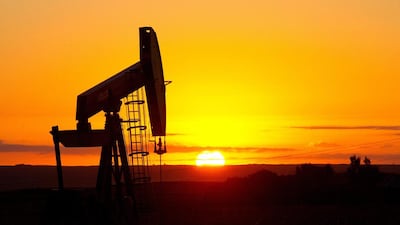Oil prices edged higher on Tuesday as US politicians discussed expanding pandemic aid payments to citizens and the Brexit trade agreement received European Union approval. A weaker dollar, as well as vaccination rollouts by many countries, is also supporting oil prices.
Brent, the global benchmark for two-thirds of the world's oil, rose 0.55 per cent to $51.14 per barrel at 10.26am UAE time, whereas US crude gauge West Texas Intermediate rose 0.61 per cent to $47.91 per barrel.
“Oil is finishing the year on a sombre note as the short-term demand risk of more travel restrictions clashes with optimism over a vaccine rollout and a Brexit deal, which is already underway and will eventually boost energy demand,” Avtar Sandu, senior manager of commodities at Singapore-based Phillip Futures, said in a note.
The European Union and the UK sealed a historic Brexit deal last week setting out the terms of their relations for years to come. EU leaders approved the deal on Monday and UK politicians are set to vote on the terms on Wednesday.
In the US, the House of Representatives on Monday voted in favour of increasing stimulus cheques for individuals from $600 to $2,000 under the latest coronavirus aid package. Countries across the globe also announced plans to roll out vaccines to halt the spread of the pandemic.
The UAE's energy minister Suhail Al Mazrouei expects oil demand to recover gradually in 2021 on the back of the global distribution of coronavirus vaccines and an easing in trade tensions between the US and China.
"We see that 2021 will be a year of recovery," Mr Al Mazrouei told Sky News Arabia on Thursday. "However, the recovery in demand will be gradual and will not be in a quarter or two."
Opec+, the alliance between Opec and non-member producers, is set to increase output by 500,000 barrels per day from January.
The group, led by Saudi Arabia and Russia, will meet on January 3 and 4 to discuss current levels of adherence to the output restriction pact and to decide on further potential production hikes. Opec+ is currently cutting production by 7.7 million barrels per day to stabilise oil markets amid the pandemic.
"Crude could become somewhat range-bound around current levels unless there is a major unexpected development," Vandana Hari, founder and chief executive of Singapore-based Vanda Insights, said. "The two major influences, Covid's continuing grip in the Western hemisphere and the rollout of vaccines, are baked in."


